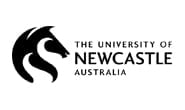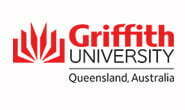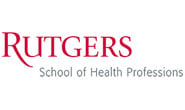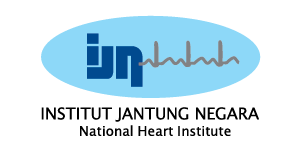ABOUT
What is the difference between a dietician and a nutritionist? Nutrition is the science that deals with the study of foods and nutrients, and their effect on an individual. On the other hand, Dietetics is the practical application of nutrition in the prevention and treatment of disease.

Dietetics with Nutrition Degree
Graduates of IMU’s Dietetics with Nutrition Degree programme will be able to work as dietitians in the government and private sectors, providing healthcare services, food service management, and counselling in disease management and prevention.
This 4-year programme provides an advantage for employment as students are exposed to a variety of work placements such as food service, clinical dietetics and community dietetics.
IMU STUDENT DIETETICS CLINIC – HEAL WITH FOOD, CONSULT A DIETITIAN
The IMU Student Dietetics Clinic (SDC) offers individual dietary consultations to people with specific medical conditions. We utilise the latest scientific evidence in providing quality care to our patients. This clinic serves as a platform to provide students with a safe and supportive learning environment to develop their dietetic skills to achieve desired competencies as dietitian. The IMU SDC is led by the final year dietetics students under the direct supervision of qualified and experienced IMU dietitians.
Our students provide individualised dietary advice for a range of medical conditions including Weight management, Diabetes, High Blood Pressure, High Blood Cholesterol, Chronic Kidney Disease, Anaemia, Irritable Bowel Syndrome, Acid reflux disease, Gastritis and Gout.
Key Facts
Why Study Dietetics with Nutrition at IMU?
An Established Private Healthcare University
IMU is Malaysia’s first and most established private medical and healthcare university with over 30 years of dedicated focus in healthcare education.
IMU achieved the SETARA-2018/2019 Tier 6 status (Outstanding) under the Mature University category.
Build Your Future Healthcare Professional Network
As IMU offers the widest range of healthcare programmes, our students are fully immersed in a vibrant community of students and practitioners from a variety of healthcare fields.
This allows for the development of strong friendship amongst peers that will be the foundation of an extensive healthcare professional network upon graduation.
Well-Known Faculty Members
The lecturers in the Division of Nutrition and Dietetics are recipients of research grants, high impact publications and key opinion leaders in the field of nutrition and dietetics.
Training Future Leaders
Our curriculum provides opportunity to develop leadership and team working skills due to strong emphasis on Interprofessional learning and group projects.
The courses place great emphasis on building good communication skills through various oral presentation, case study discussions, training with simulated and real life patients.
Opportunity for Work Life Experience and Student Mobility
The innovative curriculum offers early exposure to work experience and hands-on opportunity to enhance skills through clinical and community projects.
There are also opportunities for student mobility programmes in clinical and community setting which improves work preparedness of the graduates.
Programme Structure
Semester Contents
| Short Semester | Semester 1 | Semester 2 |
|---|---|---|
|
|
|
| Semester 3 | Semester 4 | Semester 5 |
|---|---|---|
|
|
|
| Semester 6 | Semester 7 & 8 | |
|---|---|---|
|
|
|
Entry Requirement
| Examinations | Requirements |
|---|---|
| A- Levels | CDD (Including 2 subjects from: Biology; and/or Chemistry; and/or Physics / Mathematics) |
| STPM | Overall cGPA 2.50 (cGPA 2.33 In 2 subjects from: Biology; and/or Chemistry; and/or Physics / Mathematics) |
| Australian Matriculation | ATAR 70 (Including 2 subjects from: Biology; and/or Chemistry; and/or Physics / Mathematics) |
| NCEA Level 3 | 65% aggregate (with 60% in 2 subjects from Biology; and/or Chemistry; and/or Physics / Mathematics) |
| Canadian Grade 12/13 | 70% aggregate in 6 subjects (with an average of 60% in 2 subjects from: Biology; and/or Chemistry; and/or Physics / Mathematics) |
| Unified Examination Certificate (UEC) | B in 5 subjects (Including 2 subjects from: Biology; and/or Chemistry; and/or Physics / Mathematics) |
| Australian University Foundation Programmes | 70% aggregate or ATAR 70 (with 60% in 2 subjects from Biology; and/or Chemistry; and/or Physics / Mathematics) |
| Indian Pre-University | 65% aggregate (minimum 60% in 2 subjects from Biology; and/or Chemistry; and/or Physics / Mathematics) |
| Ministry of Education Matriculation # | Overall cGPA 2.50 (cGPA 2.33 In 2 subjects from: Biology; and/or Chemistry; and/or Physics / Mathematics) |
| International Baccalaureate (IB) | 26 points (Including 2 subjects from: Biology; and/or Chemistry; and/or Physics / Mathematics) |
| American High School Diploma with Advanced Placement (AP) | Overall cGPA 2.50 (cGPA 2.33 in 2 subjects from Biology; and/or Chemistry; and/or Physics / Mathematics) |
| Foundation Studies # | Overall cGPA 2.50 (cGPA 2.33 In 2 subjects from: Biology; and/or Chemistry; and/ or Physics / Mathematics) (Foundation in Science / Foundation in Biosciences / Foundation in Engineering or equivalent) |
| Degree | BSc in related field: cGPA 2.00 |
| Diploma | Diploma in Science (including 2 science subjects) ; Diploma in related field – cGPA 2.75 Diploma in related field with a cGPA less than 2.75 and minimum 3 years of working experience in the same field |
# The duration of this programme must be a minimum of 1 year in the same accredited institution and foundation in other disciplines are accepted.
Language Requirement
| MUET* | Band score of 3; or (For Malaysian students) |
| IELTS | Overall band score of 5.5; or |
| TOEFL iBT* | Overall score of 46; or |
| Cambridge English : Advanced (CAE)* | Overall score of 162; or |
| Cambridge English : Proficiency (CPE)* | Overall score of 162; or |
| Cambridge Linguaskill* | Overall score of 160; or |
| Pearson Test of English (PTE)* | Overall score of 51; or |
| Credit Transfer | IELTS Overall band score of 7.0 |
The following categories of students* are exempted from the English requirements:
Students who graduated from other institutions where the curriculum is delivered in English Language for example: Advanced Levels / Australian Matriculation / Australian University Foundation Year / Canadian Matriculation / International Baccalaureate / Foundation in Science / Other Pre-University/ Programmes from Local Higher Education Institutions
* ONLY applicable for those who are completing the entire degree at IMU, Malaysia
Note
Please note that achieving the minimum Entry and English requirements as stated does not guarantee you admission into any of IMU’s programmes.
Please refer to our Student Admissions Policy for more information.
Application and Registration Fees
| Fee | Malaysian Student (RM) | International Student (RM) |
|---|---|---|
| Application Fee | 150 | 500 |
| Registration Fee | 850 | 2,000 |
| Refundable Caution Deposit | 1,000 | 1,000 |
Fee Structure
malaysian student
| Total Duration (years) | At IMU University | At Partner University (PU) | ||||||
|---|---|---|---|---|---|---|---|---|
| Years | Total Semesters | Tuition Fee (RM) | Estimated Tuition Fees at Partner University | |||||
| Per Semester | Per Year | Years | Semesters | Tuition Fee Per Year * | ||||
| Bachelor of Science (Hons) Dietetics with Nutrition | 4 | 4 | 8 | 24,000 | 48,000 | – | – | – |
| – Credit Transfer to University of Newcastle Bachelor of Nutrition and Dietetics | 4 | 2 | 4 | 24,000 | 48,000 | 2 | 4 | A$40,535 |
| – Credit Transfer to Griffith University Bachelor of Nutrition and Dietetics | 4 | 2 | 4 | 24,000 | 48,000 | 2 | 4 | A$39,500 |
International Student
| Total Duration (years) | At IMU University | At Partner University (PU) | ||||||
|---|---|---|---|---|---|---|---|---|
| Years | Total Semesters | Tuition Fee (RM) | Estimated Tuition Fees at Partner University | |||||
| Per Semester | Per Year | Years | Semesters | Tuition Fee Per Year * | ||||
| Bachelor of Science (Hons) Dietetics with Nutrition | 4 | 4 | 8 | 25,000 | 50,000 | – | – | – |
| – Credit Transfer to University of Newcastle Bachelor of Nutrition and Dietetics | 4 | 2 | 4 | 25,000 | 50,000 | 2 | 4 | A$40,535 |
| – Credit Transfer to Griffith University Bachelor of Nutrition and Dietetics | 4 | 2 | 4 | 25,000 | 50,000 | 2 | 4 | A$39,500 |
| Country | Estimated Living Costs (Per Year) |
Exchange Rate (As of Dec 2023) |
|
|---|---|---|---|
| Estimated Living Cost (Per Year) | Australia | AUD 21,000 – AUD 30,000 ≈ RM 65,900 – RM 94,200 | AUD 1 ≈ RM3.14 |
| Canada | CAD 28,000 ≈ RM 98,000 | CAD 1 ≈ RM3.50 | |
| China | RMB 85,000 ≈ RM 56,100 | RMB 1 ≈ RM0.66 | |
| Ireland | EUR 12,000 ≈ RM 62,000 | EUR 1 ≈ RM5.17 | |
| New Zealand | NZD 22,000 – NZD 26,000 ≈ RM 64,500 – RM 76,200 | NZD 1 ≈ RM2.93 | |
| United Kingdom | GBP 10,000 – 22,700 ≈ RM60,000 – RM 136,200 | GBP 1 ≈ RM6.00 | |
| United States of America | USD 16,000 ≈ RM 75,800 | USD 1 ≈ RM4.74 | |
| Kuala Lumpur, Malaysia | RM36,000 | RM36,000 |
Partner Universities
As an assurance of a total commitment towards quality education in dietetics with nutrition, the IMU maintains its relationship with many partner universities in Australia, United Kingdom and United States. Eligible graduates from IMU’s dietetics with nutrition programme can enrol into King’s MSc in MedTech Innovation & Entrepreneurship at King’s College London, United Kingdom.
Australia
United States
United Kingdom
Industrial Partners
The curriculum structure is constantly updated to meet the ever-changing industries’ needs and includes research-led teaching to deliver evidence-based knowledge and practice in the industry. Students will have the opportunity to undergo industrial training in the related sectors in their final semester. They will also be able to collaborate with industry or/and researcher in related project in their final year. The organisations involved in these internships are:
Views from Our Community

Gursharon Kaur Gill
Alumnus, Dietetics with Nutrition
The IMU Dietetics with Nutrition programme has indeed prepared me well to enter the working world. With the intensive clinical practicum training by the Clinical Instructors and lecturers, I have not only built a good foundation of knowledge but also improved my soft skills with the various exposures that I have had through the coursework and training at the hospitals, health clinics and community centres.

Abdul Rahman bin Mohamed
Alumnus, Dietetics with Nutrition
Dietetics with Nutrition in IMU has taught me 2 keys things; character development and strong work ethics. This has helped me maintain my standard as Clinical Dietitian in the government sector today. The close relationship with the passionate lecturers sharing their wisdom will always be cherished in my mind.

Kee Ling Xuan
Second Year Student, Dietetics with Nutrition
I am glad to meet experienced, and friendly lecturers who have worked in a related field in the past. This has inspired me to be a competent dietitian in the future. With this, it prepares me for future work life after graduation.

Ong Yee Ping
Final Year Student, Dietetics with Nutrition
I have always been fascinated by how nutrition can impact human health, which is the main question that leads me to my journey in IMU. It is also one of the best decisions that I have made for myself. Studying Dietetics with Nutrition in IMU made me realise that it is not just about the knowledge that is valuable, but what comes together with the knowledge. The soft skills that I acquired along the journey have made me a better person than I was before besides essential knowledge and skills to become a competent dietitian.
Latest News & Stories
Research & Activities
Diet and nutrition play an important role in influencing our health. Hence, it is essential that research is conducted in the areas of nutrition and dietetics to further our knowledge in this field. This is one of the important roles of the Centre for Transformative Nutrition and Health (CTNH) in its bid to gain a reputation in food & clinical nutrition related areas.
What is CTNH?
 The Centre for Transformative Nutrition and Health (CTNH) aims to contribute and increase knowledge in the field of nutrition and health and train future nutritionists & dietitians. We are a team of researchers from various backgrounds, studying the nutrition-health relationship at various levels to understand the complex ways in which diet and nutrition influence our health.
The Centre for Transformative Nutrition and Health (CTNH) aims to contribute and increase knowledge in the field of nutrition and health and train future nutritionists & dietitians. We are a team of researchers from various backgrounds, studying the nutrition-health relationship at various levels to understand the complex ways in which diet and nutrition influence our health.
Frequently Asked Questions
What is the structure of the programme?
Semester contents are available in the programme brochure [Download Brochure]
What are the teaching-learning approaches used?
The Dietetics with Nutrition programme utilises a combination of teaching and learning approaches which include lectures, tutorials, practical classes, seminars, problem-based learning, field visits, group/individual assignments, and development of communication skills.
Students are required to conduct a research project in the third year. Topics in nutrition and health related fields will be chosen. Students will be required to prepare a research proposal, to collect and analyse data, and to write a thesis at the end of the exercise.
With this knowledge and skills, the students are able to work in their future work environment as competent and effective professionals working in the clinical community and / or industry settings.
Who are the teaching staff?
The University has well-qualified, experienced teaching staff from the Dietetics with Nutrition programme. Over half have recent practicing experience and are qualified dietitians. The lecturers have postgraduate degrees in the area of nutrition and dietetics. The teaching staff are pioneers in this area of study and have supervised undergraduate and postgraduate student projects and dissertations as well as conducted workshops. They are also actively involved in research and have published extensively in the areas of nutrition and dietetics.
Other qualified senior professional staff of IMU will also provide lectures in the non Dietetics with Nutrition modules in Year 1 of the programme. Dietitians from various specialists hospitals will also be invited to teach in this programme.
How will I be assessed?
Students will be assessed through their class tests, practicals, reports, workshops, essays, problem-based learning, projects, presentation, thesis and written examination.
An OSCE (objective structured clinical examination) is also conducted during the Final Year to ensure students are capable of providing competent and safe dietetic practice upon graduation.
What are the semester contents?
Semester contents are available in the programme brochure [Download Brochure]
What is the medium of instruction?
The medium of instruction is English. Students who come from a system of education in which the medium of instruction is not English are strongly recommended to improve their proficiency in English by making their own arrangements to attend additional English Language classes before entering the IMU.
Who will award the Dietetics with Nutrition degree?
The Bachelor of Science (Hons) Dietetics with Nutrition degree is awarded by IMU. The partner university will award the respective degree to students who transfer to the school.
What sort of jobs/careers can be undertaken with this degree?
There are various job opportunities for the graduates of this programme. As qualified dietitians, they can seek employment in the following work places:
Hospitals, clinics and other healthcare facilities
Hospitals, clinics and other healthcare facilities dietitians provide nutrition care for patients in hospitals. They assess patients’ nutritional status, develop, implement and monitor medical nutrition therapies appropriate to the patient’s medical history and lifestyle. With sufficient years of experience and further certification, dietitians may specialise in paediatrics, gastroenterology, renal and other specific medical areas. Dietitians work in community-based healthcare settings such as medical clinics, long term care facilities and wellness centers to provide dietary consultancy for medical conditions and may perform home visits to assist patients’ compliance to dietary advice, and assist in disease prevention programmes.
Food service industry
Dietitians supervise meal planning and preparation in hospitals, workplace cafeterias, sports institutions and other facilities requiring large-scale food service such as schools, prisons, and long-term care homes. Dietitians manage the food safety procedures, menu development, budgeting and control.
Medical and healthcare related business/industry
Dietitians may be employed by wellness and food/nutrition-related or pharmaceutical industry to provide food and nutrition information to clients and patients. Dietitians provide advice on nutritional content, and use of therapeutic products.
Sports and fitness industry dietitians may be employed to provide dietary counselling to recreational and competitive athletes to improve performance and health. They serve as a food and nutrition resource for coaches and trainers; and provide sports nutrition education for fitness programmes.
University / Research Institutions
Dietitians may join an academic institution to teach, conduct research and undertake publication, as well as contribute in building capacity in training future dietitians. For those who wish to focus on research, they may explore working in research institutions in the public or private sector (e.g. research and development industry).
Private Consultancy
Dietitians with sufficient experience may venture to setting up their own practice or work under contract with healthcare facilities. They perform nutrition assessment and advice on diet-related concerns such as weight loss, heart disease, diabetes and other chronic diseases. They may also provide consultancy in nutrition and dietetic matters to corporate, government and professional societies.
When do I apply for a place in IMU?
You can apply using forecast or actual results.
Have a Question? Ask Us
Interested in Applying for One of Our Programmes?
Having Issues with Your Online Application Process?
Need Assistance?
A Word from the Programme Director
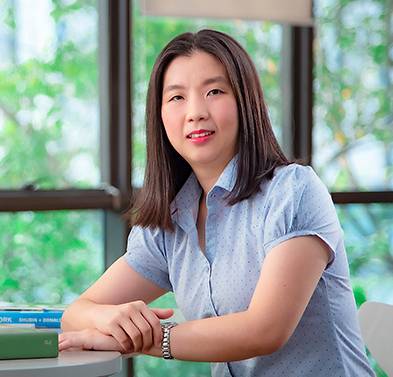
DR LEE YI YI
Senior Lecturer, Programme Director and Dietitian MAHPC(DTN)00505
BHSc (Hons) Dietetics, MSc, PhD (Universiti Sains Malaysia)
“Dietitians empower individuals to adopt health-conscious food choices to reach specific health related goals. In IMU, we are dedicated to train our students to be competent dietitians who will be able to contribute tremendously in the field of healthcare, food service, community, corporate setting, industries, research, educational arenas and many more.”




